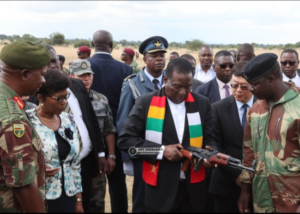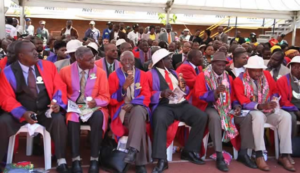UNRAVELLING THE ILLUSION OF ELECTORAL GAINS
In the stark confines of his cell, Job Sikhala, the resolute vice president of the reinvigorated opposition party, embodies the struggle against the ruling Zanu PF party’s paranoia and corruption. Sikhala, a vocal critic of the regime, finds himself imprisoned on allegations of inciting violence, a charge that adds fuel to the fiery political landscape of Zimbabwe.
His efforts to contest what he views as unjust and unwarranted detention have fallen on deaf ears within the nation’s judiciary. This isn’t an isolated incident; the judiciary’s history of overlooking cases implicating Zanu PF officials in corruption, exemplified by the Draxgate scandal, speaks volumes about its alleged complicity with the government.
The court’s apparent indifference to these cases, coupled with its keen focus on Sikhala, underscores the government’s deep-seated fear of an uprising. Zanu PF has long wielded fear and oppression as tools of control, manipulating legal systems to their advantage and silencing any form of dissent with an iron fist. Sikhala’s predicament is a stark representation of this fear, highlighting the government’s determination to quash opposition voices.
The charges against Sikhala, though not explicitly detailed, suggest an accusation of instigating violent protests against the Zanu PF government. To outsiders, this might seem baseless, but set against the backdrop of a nation struggling with hyperinflation, unprecedented unemployment, rising crime, business shutdowns, foreign exchange scarcities, and sky-high inflation, the government’s anxiety becomes palpable.
Zanu PF’s actions seem to be a preemptive strike against an expected backlash from the public, outraged by their economic mismanagement and neglect of citizen welfare. This anticipatory anxiety has intensified scrutiny of Sikhala and other opposition figures who represent a potential threat to the status quo.
The root of Zanu PF’s fear likely stems from the possibility of facing repercussions from a population pushed to the edge. Their failure to address the welfare of the nation and the spiraling economic crisis has left many feeling ignored and oppressed. The haunting memories of past political detentions under the previous regime amplify this fear, raising concerns that history could repeat itself.
The threat of losing lives and livelihoods, especially among the elite who have benefited from the government’s exploitation of national resources, perpetuates a cycle of fear and repression. Sikhala’s imprisonment thus stands as a somber reminder of the looming danger over the Zanu PF regime. As Zimbabwe teeters on the brink of an uncertain future, Sikhala’s fate symbolizes the enduring fight for justice and a resurgent commitment to the rule of law.
In this charged atmosphere, the people of Zimbabwe watch and wait, their eyes fixed on the unfolding saga of Sikhala, a man who has become a beacon for those yearning for change. His story is not just a personal plight but a reflection of a nation’s quest for freedom, dignity, and a return to democratic principles.



